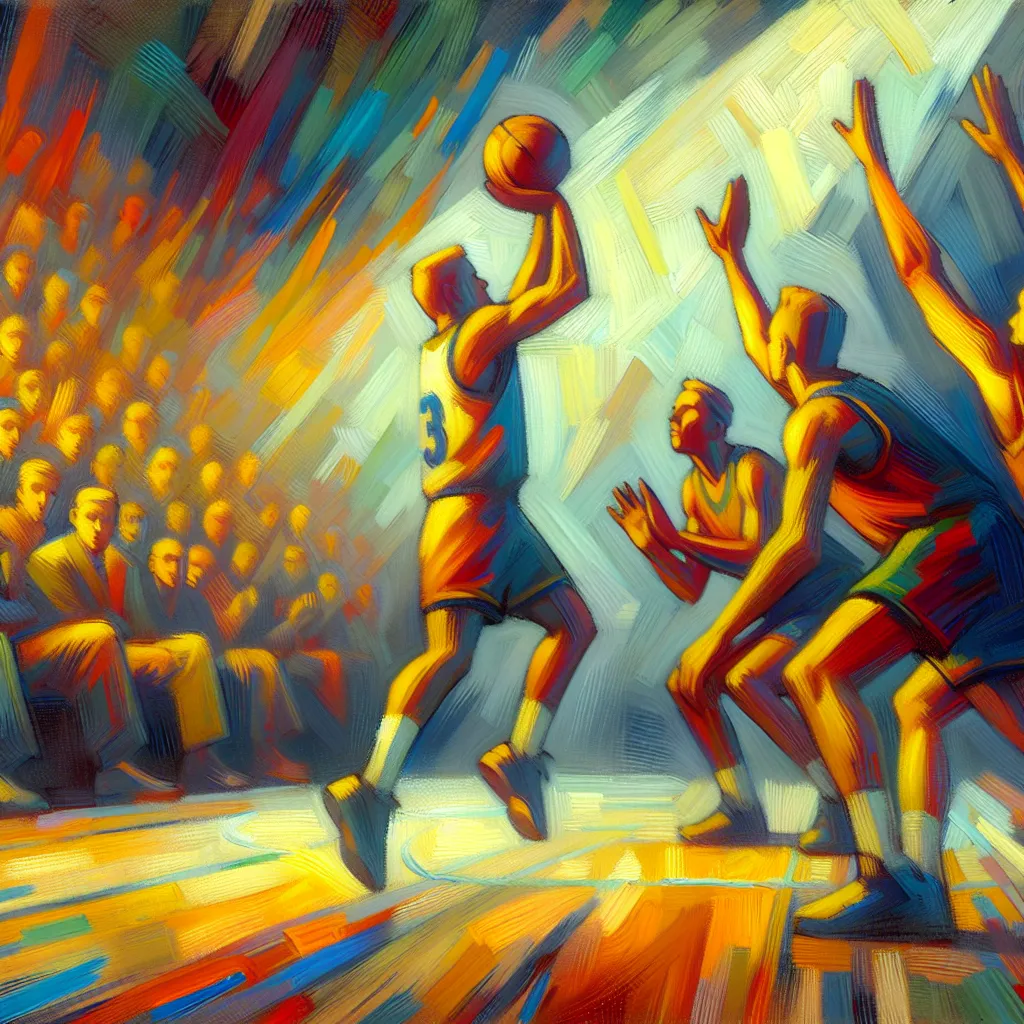
- Published on
- Authors

- Name
- Sports Tips
Clutch Scoring: Performing Under Pressure
Being able to perform in clutch situations — when the outcome of the game is on the line — is what separates good athletes from the greats. Whether it's hitting a buzzer-beater in basketball, scoring a last-minute goal in soccer, or sinking a crucial putt in golf, performing under pressure demands a blend of mental fortitude and technical precision.
Mental Aspects
1. Composure
Maintaining composure in high-stakes moments is crucial. Players often find their nerves tested, and staying calm can be the difference between success and failure.
- Techniques to Maintain Composure
- Breathing Exercises: Deep, controlled breathing helps slow down the heart rate.
- Visualization: Imagining successful actions can increase confidence.
- Routine: Developing a pre-play routine can ground the player.
2. Confidence
Confidence stems from self-belief and preparation. Players who thrive under pressure often have unwavering confidence in their abilities.
- Building Confidence
- Preparation: Thoroughly practiced skills become second nature.
- Positive Self-Talk: Encouraging oneself rather than focusing on negative outcomes.
- Past Successes: Recalling previous successful moments boosts confidence.
Technical Aspects
1. Shot Selection
In clutch situations, choosing the right shot can be more important than executing a difficult one. Smart shot selection involves understanding the game context and the player's own strengths.
- Factors in Shot Selection
- Distance: Favor shots within the player's range and comfort zone.
- Defenders: Consider the positioning and skill level of opponents.
- Time Management: Weigh the remaining time and score.
2. Precision and Execution
Precision hinges not just on physical skills but also on mental focus. Execution under pressure demands automaticity — performing actions smoothly and without conscious thought.
Comparison by Sport
| Sport | Key Clutch Moments | Relevant Skills | Technique Tips |
|---|---|---|---|
| Basketball | Last-second shots, free throws | Shooting accuracy, dribbling | Follow-through, eye on the rim |
| Soccer | Penalty kicks, injury-time goals | Kicking precision, positioning | Inside foot for accuracy, calm run-up |
| Golf | Final putts, critical drives | Putting accuracy, swing mechanics | Steady hands, focus on the ball |
| Tennis | Match points, tiebreakers | Serve accuracy, rallies | Consistent swing, placement strategy |
Coaching Wisdom
Coaches play a pivotal role in helping athletes develop clutch abilities. They need to emphasize both the mental and technical aspects during training and real-game scenarios.
1. Simulate Pressure Situations
Creating practice scenarios that mimic high-pressure game moments can help players acclimate to the stress.
- Drills and Exercises
- Pressure Free Throws: Adding consequences for missed shots.
- Timed Scenarios: Simulating end-of-game situations.
- Small-Sided Games: Encouraging quick decision-making.
2. Positive Reinforcement
Highlighting and rewarding successful clutch performances during training encourages repetition of those behaviors.
3. Mental Coaching
Providing athletes with psychological tools and strategies to manage stress can be as important as physical training.
- Mindfulness Practices: Techniques to stay present.
- Goal-Setting: Clear, focused objectives to reduce overwhelming feelings.
Conclusion
Clutch scoring is a blend of mental toughness and technical skill, honed through rigorous practice and the right mindset. Understanding both aspects can empower athletes to rise above pressure and deliver when it matters most. Coaches and players alike must recognize the importance of preparation, confidence, and intelligent decision-making to excel in these critical moments.
Remember: The greatest players aren't just physically gifted; they have the mental strength to shine when the spotlight is brightest.
